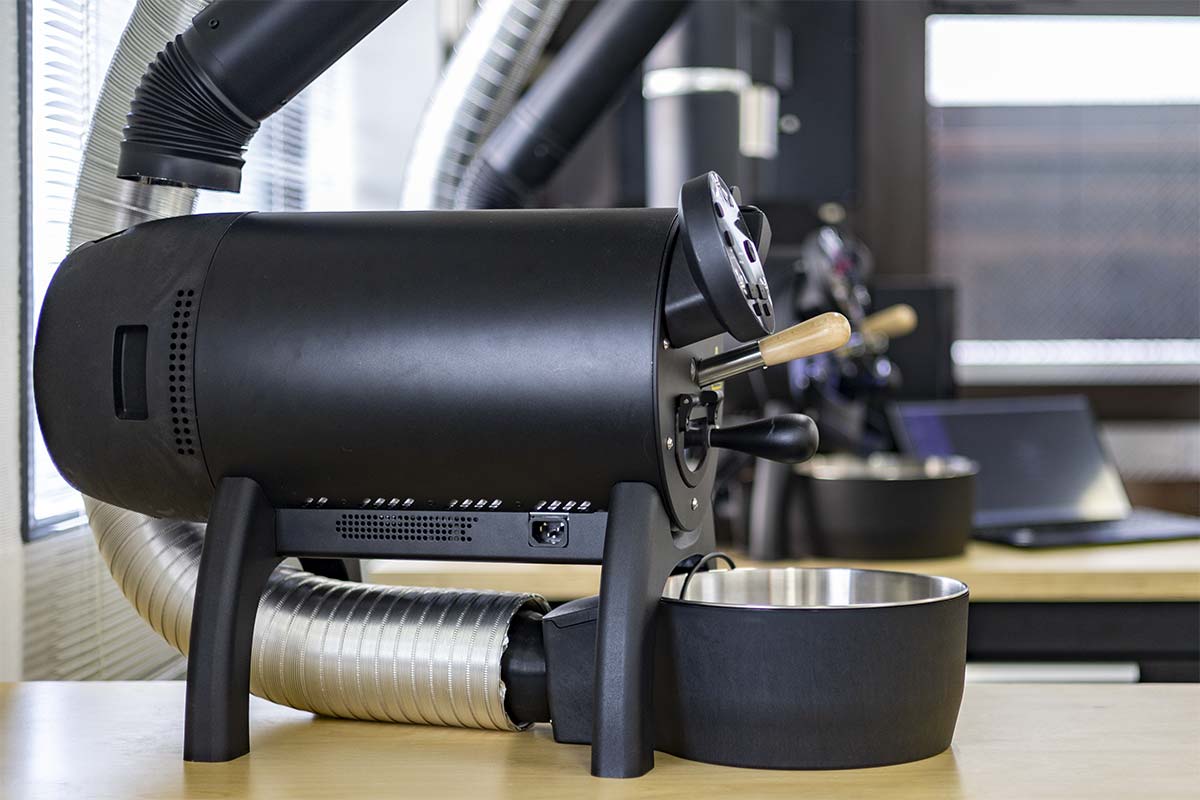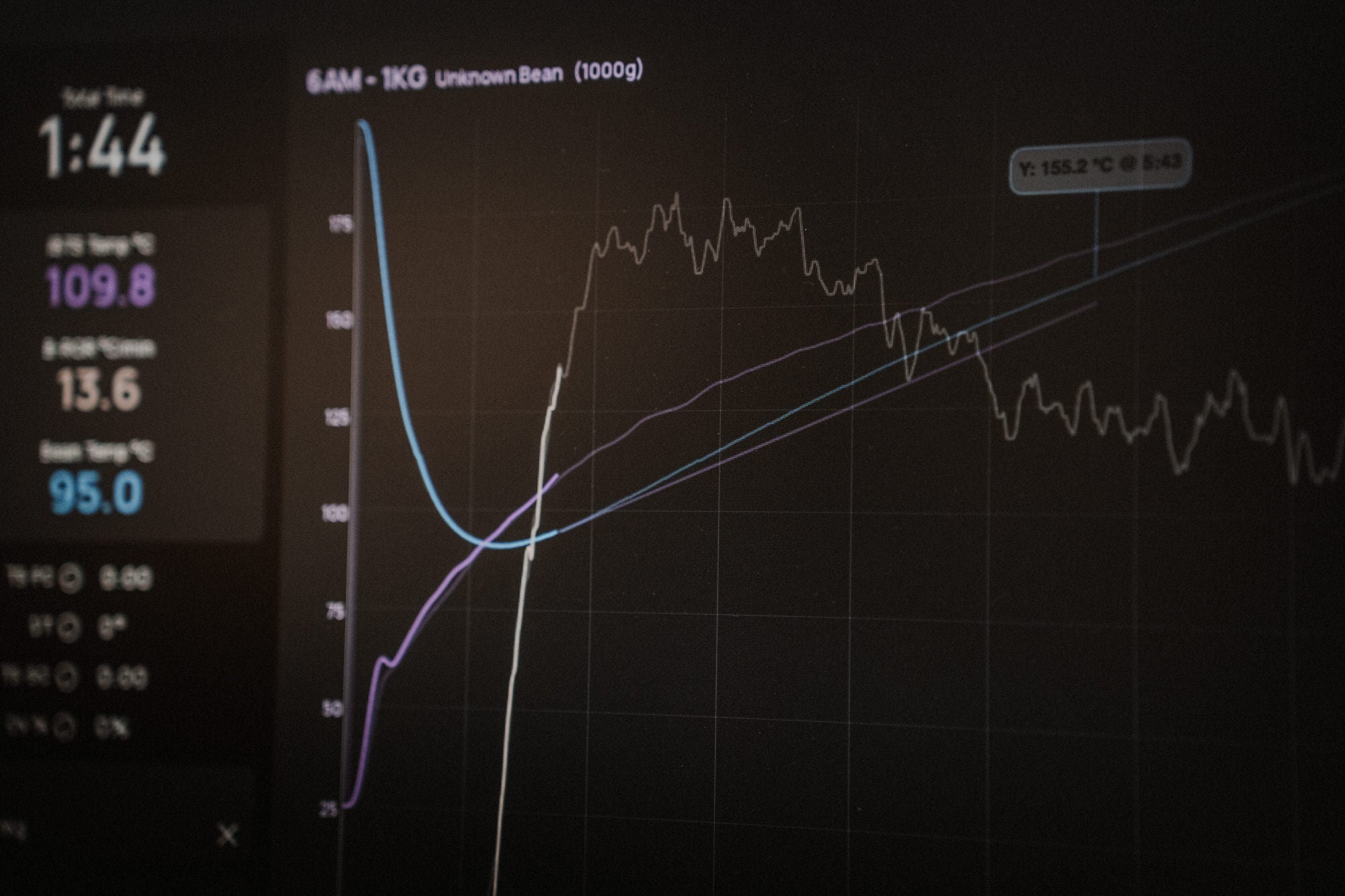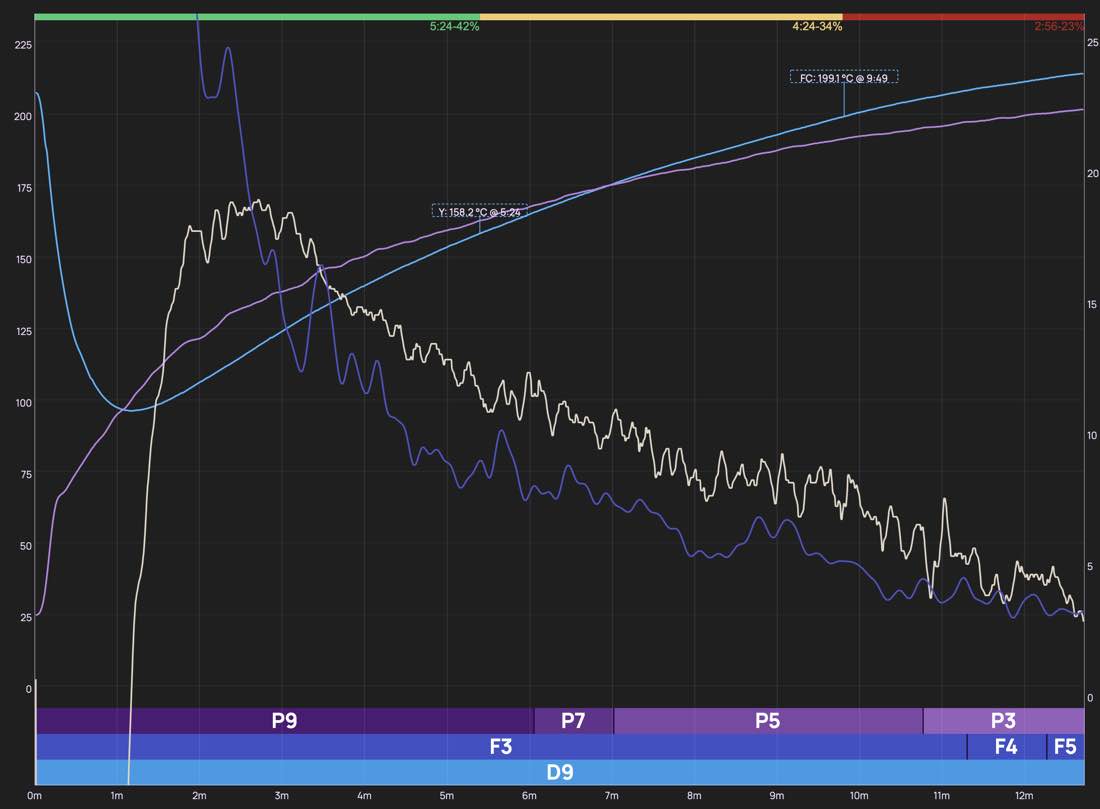Free shipping across Canada 2 bags or 1kg 🤩
The Advantage of Electric Coffee Roasters
Last edit Feb 4, 2024 ● Published Jul 5, 2023 ● Jasmin Tétreault
Currently, gas is the fuel of choice for coffee roasters worldwide. With the growing desire for more sustainable coffee, we need to consider earth-friendly alternatives such as electric roasters. Why did we choose electric over gas? Discover the compelling benefits and the thought process that led to our decision.
Electric vs. gas roasters
Historically, coffee roasting relied heavily on gas energy, regardless of the type of roaster used - whether drum or fluid bed. Most of these roasters operate with analog input to control the gas setting to manage temperature. This process required strict vigilance over several variables, from roasting temperature to total roasting time making it error-prone and less consistent.
Although gas roasters can be automated, they become expensive. With electric roasters arriving on the market, it not only simplifies the automation process but also significantly reduces the time and effort needed for roasting, freeing up valuable resources to enhance other facets of the coffee business.
More control
When transitioning from gas to electric roasting, it's crucial to understand the differing heating mechanics. Traditional drum roasters often use direct heat transfer while more advanced gas roasters utilize convection by heating the air. Gas roasters generally have limited flexibility in switching between these heat transfer mechanics.
With newer electric roasters, the method of heat transfer varies significantly. Electric roasters offer us the autonomy to control the convective and conductive heat independently. Some roasters are even equipped with a triple heat management system that controls conduction, convection, and radiation, which is the same principle as a microwave. Being able to control parameters independently allows us to fine-tune roasting profiles and explore a wider range of possibilities.
Consistent results
Learning to roast coffee is more than simply controlling power settings. Many factors come into play like charge temperature, rate of rise, development time, dropping temperature, and more. Using a traditional manual coffee roaster can make the process more difficult since you spend more time focusing on the operation. Electric roasters, in contrast, make the process easier with easier power controls and more repeatability. They also allow for allow you to share information and recipes
To simplify the roasting process, many advanced gas and electric roasters are now equipped with technologies and algorithms that control roasting. This makes it easier to acheive a consistent roasting curve.
Why electric roasters?
In our observations, the present-day consumer is attributing increasing importance to the sustainability of coffee, desiring transparency, traceability, and environmentally friendly roasting techniques.
Pricing
Another advantage of having an electric coffee roaster is the cost. While the purchase cost of a gas roaster is less expensive initially, the total cost comes out higher due to gas system installation and operational costs. For home users, electric roasters are now more affordable and offer lower operating costs.
The turning point
The most compelling advantage of electric roasters over gas models is their minimal impact on the environment. Escalating costs associated with natural gas are compelling the coffee industry to seek more sustainable solutions. Electric roasters provide an excellent answer. They allow roasters to choose their power source, making it easier to switch to renewable energies, thereby ensuring the ongoing sustainability of coffee production.
Conclusion
In conclusion, the adoption of electric roasters marks a step towards a more sustainable and environmentally-friendly coffee industry. The control, consistency and reduced environmental impact offered by electric roasting technology present compelling reasons for roasters, like us, to embrace this alternative. As a result, we're ensuring a brighter future for both coffee and the planet.
The ultimate key to making perfect coffee?
Freshly electric roasted specialty beans

Eldorado - Best seller for 3 years
An affordable specialty coffee from Brazil. Medium roast with comforting chocolate aromas. Ideal for a well-balanced, smooth, and comforting espresso.
Eldorado is produced by the Barbosa farm in Brazil, a partner of Nucleus for 3 years now.




Comments
There are no comments.
Your comment